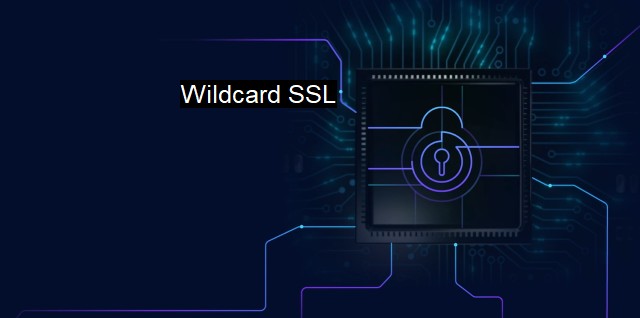What is Wildcard SSL?
Exploring the Benefits of Wildcard SSL Certificates: Securing Unrestricted Subdomains with Enhanced Access Freedom and 256-bit Encryption Technology
Data security is a fundamental issue that individuals and organizations must give utmost priority to. This underlines the significance of cybersecurity and antivirus applications, particularly in this era of relentless cyberattacks. One of the central cybersecurity provisions that guarantee secure online transactions and protection of sensitive information is Secure Sockets Layer/Transport Layer Security (SSL/TLS) certificates. In the wide spectrum of SSL certificates, there is one that stands out for its unique flexibility and extensive coverage: the Wildcard SSL Certificate.Wildcard SSL Certificate is a specialized type of SSL certificate, extensively used for securing the Principal Domain and an unlimited number of its subdomains. When it comes to comprehensive website security, the unlimited feature of Wildcard SSL becomes its major selling point. It serves as a single, revolutionary solution to encrypt communication between websites and their visitors, preventing unauthorized access, data theft, and other forms of cyber breaches.
The term "Wildcard" inherently signifies its limitless coverage. With the Wildcard SSL Certificate, it's possible to secure a main domain along with its various subdomains with just a single certificate. Here, the term "wildcard" represented by an asterisk (*) symbol characterizes the variant subdomains of the principal domain in the certificate signing request (CSR).
In practical scenarios, once the Wildcard SSL certificate is procured for "*.domain.com", it can protect the primary domain (domain.com) as well as multiple subdomains like mail.domain.com, login.domain.com, shop.domain.com, etc. Not only does it streamline the SSL management process by preventing the necessity for multiple certificates, but it also proves cost-effective given that subdomains may be added or removed under the umbrella of a single Wildcard SSL without needing additional costs.
Wildcard SSL performs a vital role in establishing a secure connection between the server and the client using encryption technology. When a user tries to access a website covered by Wildcard SSL, the server presents the SSL certificate to the user's browser. The browser then confirms the validity of the certificate from the issuing Certificate Authority (CA). Once verified, the server and the client establish an encrypted link, facilitating secure data transmission and ensuring the data shared between the server and the user remains confidential and tamper-proof, acting as a solid antivirus solution.
One significant difference between a regular SSL certificate and a Wildcard SSL certificate is that the latter not only covers your website against exploitation of one-off vulnerabilities but gives an encompassing shield against multiple potential subdomain threats. Thus, the cybersecurity aspect of using Wildcard SSL certificates goes above and beyond the typical domain validation, being a potent tool to deter cybercriminals.
Despite its numerous benefits, there might be certain risks associated with using Wildcard SSL. The key concerns revolve around its unlimited nature—any compromise in the certificate's private key would lead to the compromise of all domains and subdomains enabled by the certificate. This is a crucial issue because revoking, reissuing, and reinstalling the certificate across multiple servers can be a challenging prospect.
In a digital environment where security threats are on the rise, measures like Wildcard SSL have become absolutely necessary. They provide a comprehensive security solution, preventing unauthorized access to sensitive data across main domains and their unlimited subdomains. Even though they come with certain risk probabilities concerning their extensive reach, their cost-effectiveness, easy management, and most importantly, the substantial cybersecurity protection they offer make them a smart choice for organizations protecting their digital establishments.

Wildcard SSL FAQs
What is a wildcard SSL certificate?
A wildcard SSL certificate is a type of SSL certificate that allows secure communication between a web server and multiple subdomains using a single certificate. It is particularly useful for websites that have several subdomains that need to be secured.How does a wildcard SSL certificate work?
A wildcard SSL certificate works by securing the main domain name and all its first-level subdomains (e.g., subdomain.domain.com, subdomain2.domain.com, etc.). This means that any secure connection made to any subdomain of the main domain will be encrypted by the same SSL certificate.What are the benefits of using a wildcard SSL certificate?
Using a wildcard SSL certificate can save time and money on purchasing and installing individual SSL certificates for each subdomain. It also simplifies the management and renewal of SSL certificates since only one certificate is needed for all subdomains. Additionally, it provides a higher level of security by encrypting all subdomains under the main domain name.Are there any limitations to using a wildcard SSL certificate?
Yes, there are a few limitations to using a wildcard SSL certificate. One limitation is that it can only secure first-level subdomains, meaning that it cannot secure multiple levels of subdomains (e.g., sub1.sub2.domain.com). Another limitation is that if the private key for the certificate is compromised, all subdomains secured by the certificate are also compromised. Therefore, it is important to keep the private key secure and properly manage the SSL certificate.| | A | | | B | | | C | | | D | | | E | | | F | | | G | | | H | | | I | | | J | | | K | | | L | | | M | |
| | N | | | O | | | P | | | Q | | | R | | | S | | | T | | | U | | | V | | | W | | | X | | | Y | | | Z | |
| | 1 | | | 2 | | | 3 | | | 4 | | | 7 | | | 8 | | |||||||